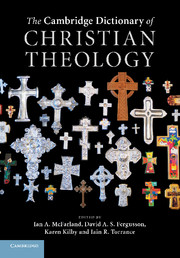H
Published online by Cambridge University Press: 05 June 2012
Summary
Habitus Although it is the etymological root of (and sometimes translated as) ‘habit’, the Latin term habitus is used in theology to refer to a more particular quality than the more or less idiosyncratic patterns of behaviour designated by its English cognate. On the most general level, habitus is a creature's disposition to act in a particular way, as considered in relation to its nature (so that a habitus is good when it accords with nature and bad when it does not). Such dispositions are subject to modification and manifest themselves in regular patterns of behaviour that in their familiarity are experienced by the agent as ‘natural’. Because the possession of proper habitus is crucial to facility in any complex action (e.g., listening, writing, riding a bicycle), their acquisition can be considered an aspect of creaturely perfection. From a specifically moral perspective the totality of a person's habitus constitutes her character.
Within the specifically theological context of medieval Scholasticism (see T. Aquinas, ST 1/2.51.1–2, 4), a distinction is drawn between habitus that are innate to an agent (e.g., knowledge of first principles), habitus that are acquired by the action of the agent that comes to possess it (e.g., reasoning from first principles), and habitus that are infused into an agent by God (e.g., wisdom). The category of infused habitus is particularly significant as a means of explaining how human beings acquire perfections (ultimately, the beatific vision) that are supernatural and therefore by definition beyond their natural capacities.
- Type
- Chapter
- Information
- The Cambridge Dictionary of Christian Theology , pp. 205 - 230Publisher: Cambridge University PressPrint publication year: 2011



